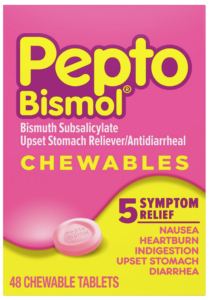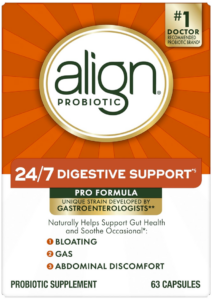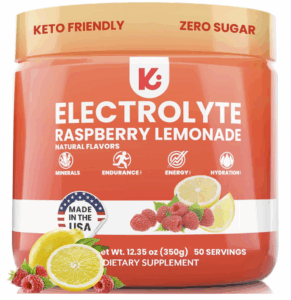Disclaimer: This post is for informational purposes only and does not constitute medical advice. Always consult your healthcare provider before starting new supplements or treatments. This website contains affiliate links, including links to products on Amazon.com. As an Amazon Associate, I may earn a small commission at no additional cost to you from qualifying purchases. I only recommend products that I personally believe in or have researched thoroughly.
Diarrhea is super common and almost everyone experiences it at some point. Whether it strikes suddenly after a meal or lingers for days, understanding the root cause of diarrhea can help you manage symptoms effectively..
In this post, we’ll break down the most common reasons for diarrhea, explore simple solutions, and highlight over-the-counter products that many people find helpful for relief.
Common Causes of Diarrhea
1. Infections
Infections are one of the most frequent triggers of diarrhea.
Common types include:
- Viral infections (like norovirus or rotavirus)
- Bacterial infections (such as E. coli, Salmonella, or Campylobacter)
- Parasitic infections (like Giardia)
Infectious diarrhea often starts suddenly and can be accompanied by nausea, vomiting, and cramping. Staying hydrated is critical during recovery.
Helpful Support:
Keppi Electrolyte Powder – Electrolyte Solution may help for rapid hydration support.
2. Food-Related Causes
Certain foods or ingredients can trigger diarrhea, especially if you have underlying sensitivities or intolerances:
- Lactose intolerance (trouble digesting dairy products)
- Fructose malabsorption (difficulty absorbing fruit sugars)
- High-fat or spicy foods
- Artificial sweeteners (like sorbitol and mannitol)
Tip:
Keeping a Food Journal can help you identify patterns between meals and symptoms.
Download your free Gut Gossip Food Journal to start tracking today!
3. Medication Side Effects
Some medications are known to cause diarrhea, including:
- Antibiotics (can disrupt gut bacteria balance)
- Magnesium-containing antacids or supplements
- Ask your doctor if diarrhea is common side effect of your medication
If you recently started a new medication and noticed changes in bowel habits, it’s important to discuss this with your healthcare provider.
4. Chronic Health Conditions
In some cases, diarrhea can be a symptom of a more chronic conditions:
- Irritable Bowel Syndrome with Diarrhea (IBS-D)
- Inflammatory Bowel Disease (IBD) — Crohn’s disease and ulcerative colitis
- Celiac disease (an autoimmune reaction to gluten)
- Hyperthyroidism (overactive thyroid)
- Bile acid diarrhea (often after gallbladder removal)
Chronic diarrhea deserves medical evaluation to rule out underlying diseases.
How to Manage Diarrhea: Over-the-Counter Options
For occasional diarrhea, several OTC (over-the-counter) products may provide symptom relief:
 Imodium (loperamide) – Slows gut motility to stop diarrhea quickly
Imodium (loperamide) – Slows gut motility to stop diarrhea quickly
 Pepto-Bismol (bismuth subsalicylate) – Eases diarrhea, nausea, and upset stomach
Pepto-Bismol (bismuth subsalicylate) – Eases diarrhea, nausea, and upset stomach
 IBgard – Helps manage IBS-related urgency and diarrhea
IBgard – Helps manage IBS-related urgency and diarrhea
 Benefiber powder – May help normalize stool if loose stool persists
Benefiber powder – May help normalize stool if loose stool persists
 Align Probiotic – Support gut flora balance, especially after antibiotics
Align Probiotic – Support gut flora balance, especially after antibiotics
Important: Always follow dosing instructions on the label and check with your healthcare provider if you have underlying health conditions.
When to See a Doctor About Diarrhea
While occasional diarrhea is usually harmless, certain signs mean you should seek medical attention:
- Diarrhea lasting longer than 48–72 hours
- Blood in the stool
- Severe dehydration (dizziness, dry mouth, low urine output)
- Fever over 101.5°F (38.6°C)
- Unintentional weight loss or ongoing diarrhea without clear cause
Your doctor can perform tests to determine the exact cause and recommend appropriate treatment.
Final Thoughts: Listen to Your Gut
Diarrhea has multiple causes ranging from a stomach bug to more complex digestive conditions. Understanding the potential causes and knowing when to use safe OTC products can help you feel more in control.
Ready to get to the bottom of your symptoms?
Download your free Gut Gossip Food Journal to start tracking your meals, symptoms, and progress today!
Disclaimer: This post is for informational purposes only and does not constitute medical advice. Always consult your healthcare provider before starting new supplements or treatments. This website contains affiliate links, including links to products on Amazon.com. As an Amazon Associate, I may earn a small commission at no additional cost to you from qualifying purchases. I only recommend products that I personally believe in or have researched thoroughly.

